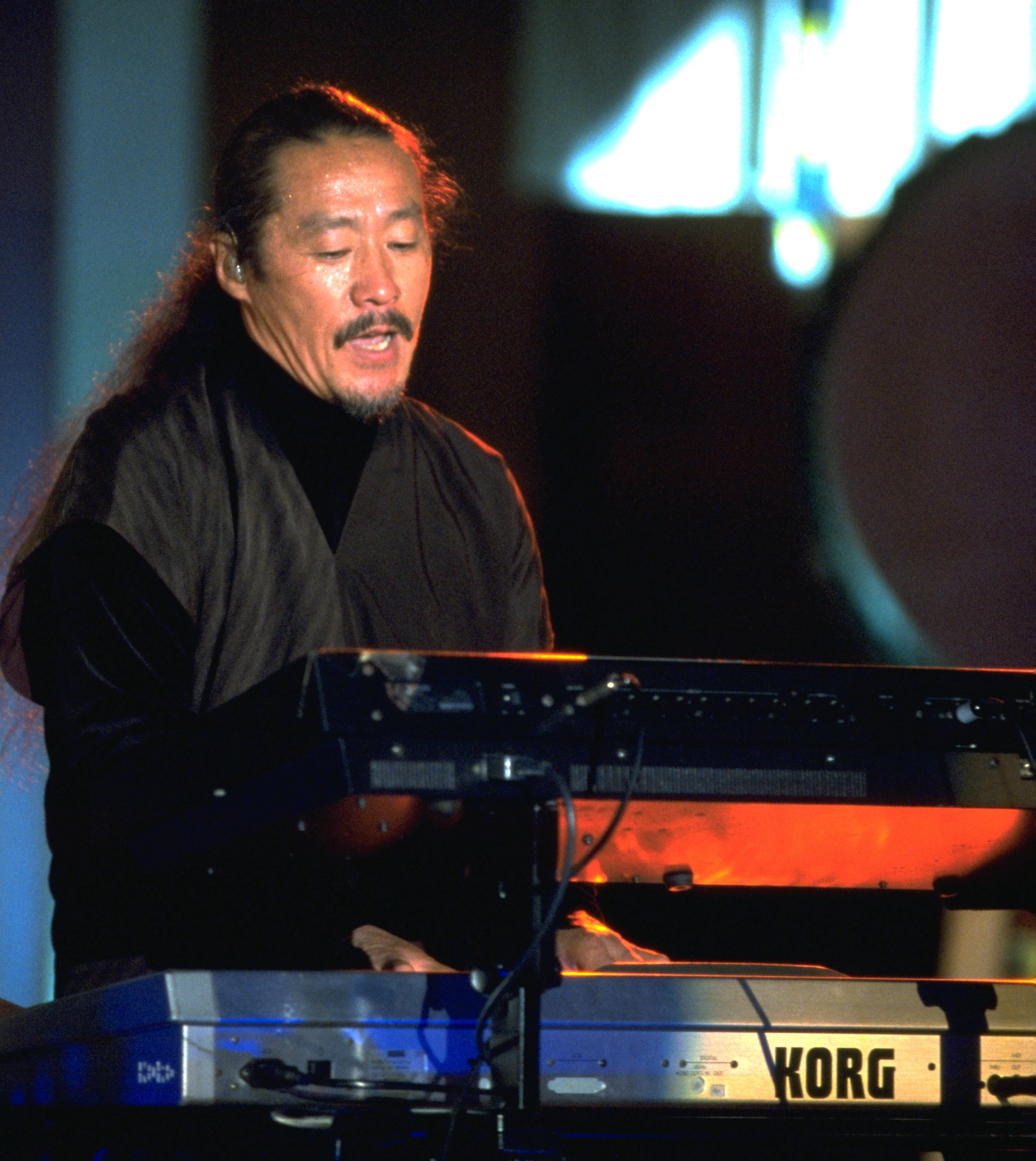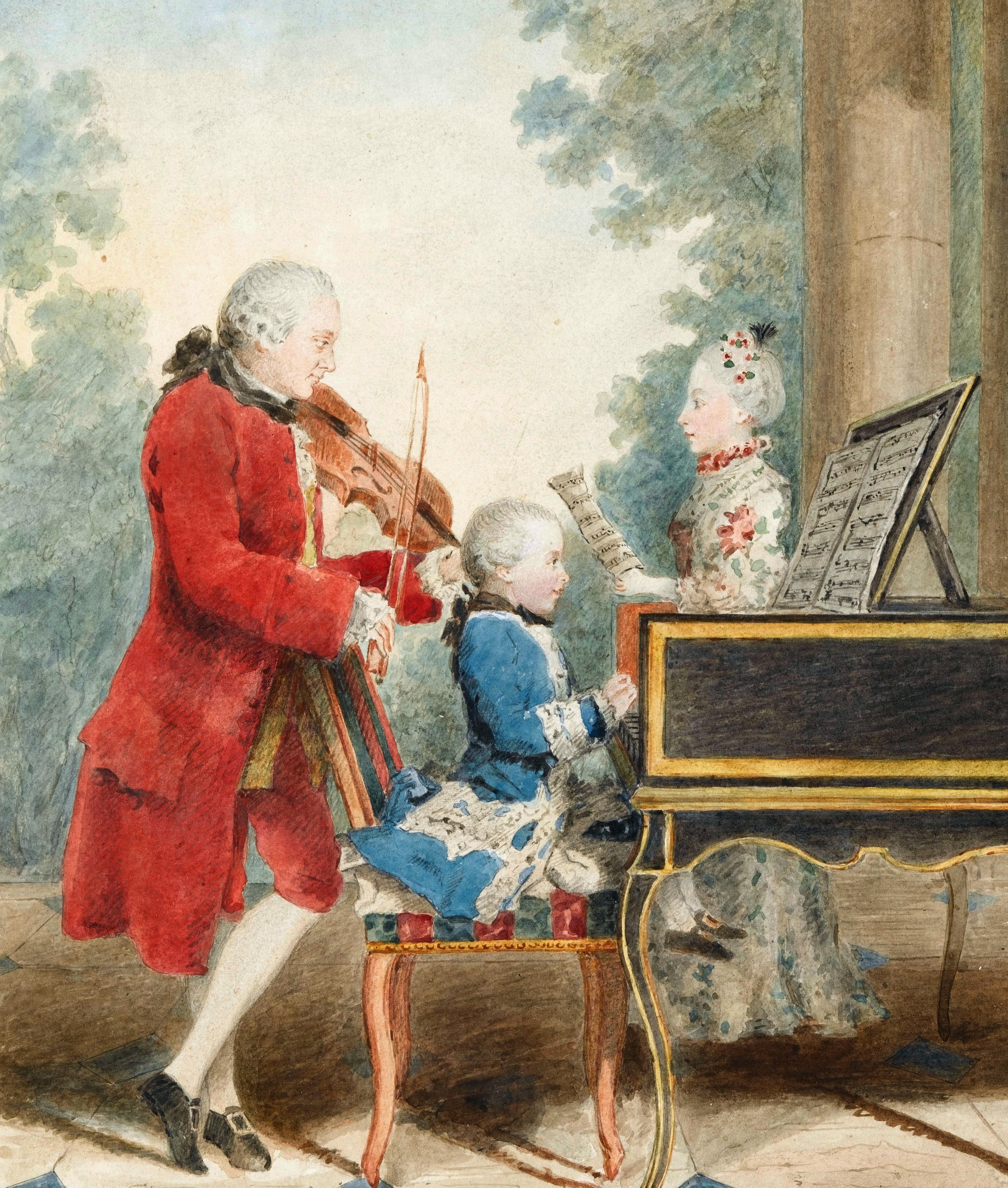|
Neoclassical New-age Music
Within the broad movement of new-age music, neoclassical new-age music is influenced by and sometimes also based upon baroque or classical music, especially in terms of melody and composition. The artist may offer a modern arrangement of a work by an established composer or combine elements from classical styles with modern elements to produce original compositions. Many artists within this subgenre are classically trained musicians. Although there is a wide variety of individual styles, neoclassical new-age music is generally melodic, harmonic, and instrumental, using both traditional musical instruments as well as electronic instruments. Characteristics Neoclassical new-age music takes a lot of its inspiration from baroque/classical music for its style. Music of this genre is primarily instrumental and heavily takes elements from classical music while drawing on religious traditions from around the world to give it more of a "mystical" vibe to the music. Neoclassical new-age mu ... [...More Info...] [...Related Items...] OR: [Wikipedia] [Google] [Baidu] |
New-age Music
New-age is a genre of music intended to create artistic inspiration, relaxation, and optimism. It is used by listeners for yoga, massage, meditation, and reading as a method of stress management to bring about a state of ecstasy rather than trance, or to create a peaceful atmosphere in homes or other environments. It is sometimes associated with environmentalism and New Age spirituality; however, most of its artists have nothing to do with "New age spirituality", and some even reject the term. New-age music includes both acoustic forms, featuring instruments such as flutes, piano, acoustic guitar and a wide variety of non-Western acoustic instruments, and electronic forms, frequently relying on sustained synth pads or long sequencer-based runs. Vocal arrangements were initially rare in the genre, but as it has evolved, vocals have become more common, especially those featuring Native American-, Sanskrit-, or Tibetan-influenced chants, or lyrics based on mythology such as ... [...More Info...] [...Related Items...] OR: [Wikipedia] [Google] [Baidu] |
Baroque Music
Baroque music ( or ) refers to the period or dominant style of Western classical music composed from about 1600 to 1750. The Baroque style followed the Renaissance period, and was followed in turn by the Classical period after a short transition, the galant style. The Baroque period is divided into three major phases: early, middle, and late. Overlapping in time, they are conventionally dated from 1580 to 1650, from 1630 to 1700, and from 1680 to 1750. Baroque music forms a major portion of the "classical music" canon, and is now widely studied, performed, and listened to. The term "baroque" comes from the Portuguese word ''barroco'', meaning " misshapen pearl". The works of George Frideric Handel and Johann Sebastian Bach are considered the pinnacle of the Baroque period. Other key composers of the Baroque era include Claudio Monteverdi, Domenico Scarlatti, Alessandro Scarlatti, Antonio Vivaldi, Henry Purcell, Georg Philipp Telemann, Jean-Baptiste Lully, Jean-Philippe Ramea ... [...More Info...] [...Related Items...] OR: [Wikipedia] [Google] [Baidu] |
Classical Period (music)
The Classical period was an era of classical music between roughly 1750 and 1820. The Classical period falls between the Baroque and the Romantic periods. Classical music has a lighter, clearer texture than Baroque music, but a more sophisticated use of form. It is mainly homophonic, using a clear melody line over a subordinate chordal accompaniment, Blume, Friedrich. ''Classic and Romantic Music: A Comprehensive Survey''. New York: W. W. Norton, 1970 but counterpoint was by no means forgotten, especially in liturgical vocal music and, later in the period, secular instrumental music. It also makes use of '' style galant'' which emphasized light elegance in place of the Baroque's dignified seriousness and impressive grandeur. Variety and contrast within a piece became more pronounced than before and the orchestra increased in size, range, and power. The harpsichord was replaced as the main keyboard instrument by the piano (or fortepiano). Unlike the harpsichord, which plucks ... [...More Info...] [...Related Items...] OR: [Wikipedia] [Google] [Baidu] |
Chris Field (composer)
Chris Field is a Los Angeles-based composer, songwriter, producer and musician. He was raised in the San Fernando Valley, and played guitar in Los Angeles for groups among multiple genres including electric guitar, jazz, and rock music. He learned how to compose music by inputting compositions from Ludwig van Beethoven and Sergei Prokofiev into his computer. Through his music associates, he became acquainted with two friends who started X-Ray Dog, and he began to contribute musical compositions to this company. Field also works with Extreme Music, and through them, Field's music has been placed in numerous television shows. In December 2014, a part of Field's catalogue was acquired by BMG Chrysalis, with whom he continues to work, on major film and television campaigns. Field's music has appeared in the films, "Elle", "Tropic Thunder", " Dumb and Dumber To", as well as countless television shows. Field's work as a musical composer for movie theatrical trailers has included ' ... [...More Info...] [...Related Items...] OR: [Wikipedia] [Google] [Baidu] |
Mannheim Steamroller
Mannheim Steamroller is an American neoclassical new-age music ensemble founded and directed by percussionist/composer Chip Davis in 1974. The group is known primarily for its '' Fresh Aire'' series of albums, which blend classical music with elements of new age and rock, and for its modern recordings of Christmas music. The group has sold 28 million albums in the U.S. alone. History Beginnings Mannheim Steamroller began as an alias for record producer and composer Chip Davis. The name "Mannheim Steamroller" comes from an 18th-century German musical technique, '' Mannheim roller'' (German: ''Mannheimer Walze''), a crescendo passage having a rising melodic line over an ostinato bass line, popularized by the Mannheim school of composition. Before the fame of Steamroller, Davis had been best known for collaborating with his friend Bill Fries on the songs of the country music character " C. W. McCall", of "Convoy" fame. The song was based on the character created by Fries a ... [...More Info...] [...Related Items...] OR: [Wikipedia] [Google] [Baidu] |
American Gramaphone
American Gramaphone is an American record company based in Omaha, Nebraska. It is best known for releasing Chip Davis' new age solo and Mannheim Steamroller albums. History American Gramaphone was formed in 1974 by Chip Davis. American Gramaphone is also a music publisher affiliated with SESAC, publishing all of Davis' compositions (including his work with Bill Fries ( C. W. McCall)). American Gramaphone has also released solo albums by Mannheim Steamroller musicians Jackson Berkey and Ron Cooley, as well as by the bands Checkfield and America. Albums See also * Music in Omaha, Nebraska * List of record labels File:Alvinoreyguitarboogie.jpg File:AmMusicBunk78.jpg File:Bingola1011b.jpg Lists of record labels cover record labels, brands or trademarks associated with marketing of music recordings and music videos. The lists are organized alphabetically, b ... References Companies based in Omaha, Nebraska American record labels Record labels established in 197 ... [...More Info...] [...Related Items...] OR: [Wikipedia] [Google] [Baidu] |
Koch Records
MNRK Music Group (pronounced "monarch", formerly known as Koch Records and eOne Music) is a New York City-based independent record label and music management company. It was formed in 2009 from the music assets of Koch Entertainment, which had been acquired by the present-day Entertainment One (eOne) in 2005. In April 2021, after the acquisition of eOne by Hasbro, the company announced that it would sell eOne Music to The Blackstone Group. It owns the libraries of Artemis Records, Dualtone Records, and Last Gang Records. History eOne as a whole has its origins in the music distributor Records on Wheels, which was acquired by the Canadian retail chain CD Plus in 2001 to expand its wholesale business. Darren Throop joined the company after CD Plus acquired his record store chain Urban Sound Exchange. The combined company later became known as ROW Entertainment, with Throop as president and CEO. In June 2005, ROW acquired the American independent music distributor and home e ... [...More Info...] [...Related Items...] OR: [Wikipedia] [Google] [Baidu] |
Narada Productions
Narada is a record label formed in 1983 as an independent new-age music label and distributed by MCA. A fully owned subsidiary of Universal Music Group and distributed by Capitol Music Group's Blue Note Records, the label evolved through an expansion of formats to include world music, jazz, Celtic music, new flamenco, acoustic guitar, and piano genre releases. Label history In 1979, John Morey started a mail-order business to sell new-age music. This led to the creation of Narada in Milwaukee in 1983, and the roster eventually included David Arkenstone, Jesse Cook, Michael Gettel, Michael Jones, David Lanz, Oscar Lopez, and Billy McLaughlin. Virgin bought Narada in 1997, along with Higher Octave and Back Porch, and directly signed Yanni and other New Age/Smooth Jazz acts. During the late 1980s and early 1990s, Narada created several sub-label imprints to differentiate its offerings, in particular Sona Gaia, Antiquity Records, Rising Sun Records, Narada World, Narada Equinox ... [...More Info...] [...Related Items...] OR: [Wikipedia] [Google] [Baidu] |
Windham Hill Records
Windham Hill Records was an independent record label that specialized in instrumental acoustic music. It was founded by guitarist William Ackerman and Anne Robinson (née McGilvray) in 1976 and was popular in the 1980s and 1990s. The label was purchased by BMG through a series of buyouts from 1992 through 1996 and is currently a subsidiary of Sony Music Entertainment after BMG's subsequent merger in 2008. Private Music, also a subsidiary of BMG, has issued some back-catalog releases under the Windham Hill Records imprint. Since the Sony merger in 2007, Windham Hill has released no new material but reissues albums and compilations as part of Sony's Legacy Recordings brand. Origin In 1975, William Ackerman was a college dropout who played acoustic guitar on the Stanford University campus. Friends asked him to record his instrumental music for them on cassette. They chipped in so that he could make an album titled ''The Search for the Turtle's Navel'' (later renamed ''In Search ... [...More Info...] [...Related Items...] OR: [Wikipedia] [Google] [Baidu] |
Erased Tapes Records
Erased Tapes Records is a London-based independent record label focusing on releasing avant-garde and experimental electronic music. History The record company was established by Robert Raths in early 2007 in London, with the release of Ryan Lee West's ''Vemeer'' EP under the Aparatec moniker. The label is sometimes mentioned for its strong sonic and visual aesthetic with a special focus on packaging and design, which has seen collaborations with FELD, Supermundane and Gregory Euclide Erased Tapes, until 2018 (with the release ERATP100 "1+1=X"), had the tradition of releasing a free compilation every 10 releases. In late 2011 Erased Tapes Records opened its publishing arm Erased Tapes Music. In 2014 Erased Tapes Music launched the Meet The Composer series. In February 2017, Erased Tapes Records opened the Erased Tapes Sound Gallery in London near Victoria Park. The space was meant to be a place where artists of all kinds could showcase their work and people could gain new ap ... [...More Info...] [...Related Items...] OR: [Wikipedia] [Google] [Baidu] |


